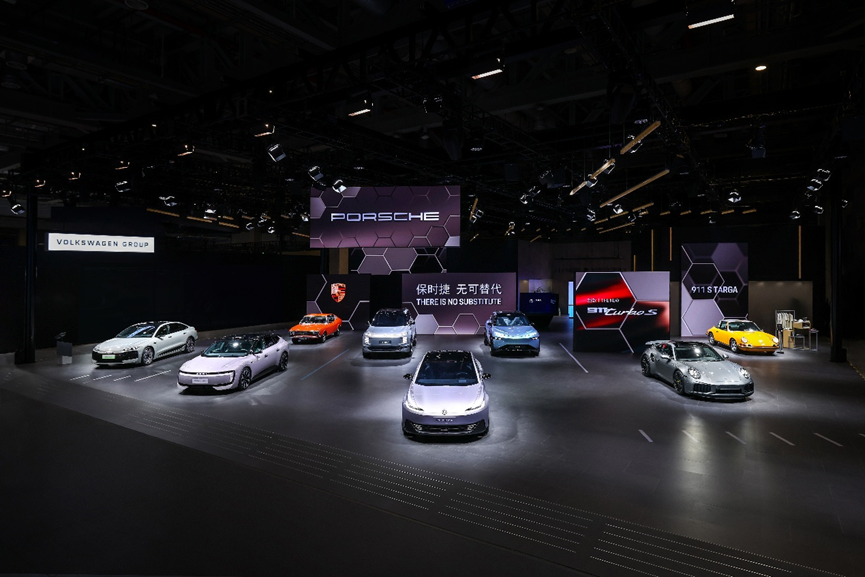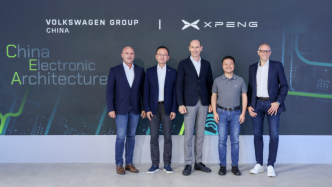
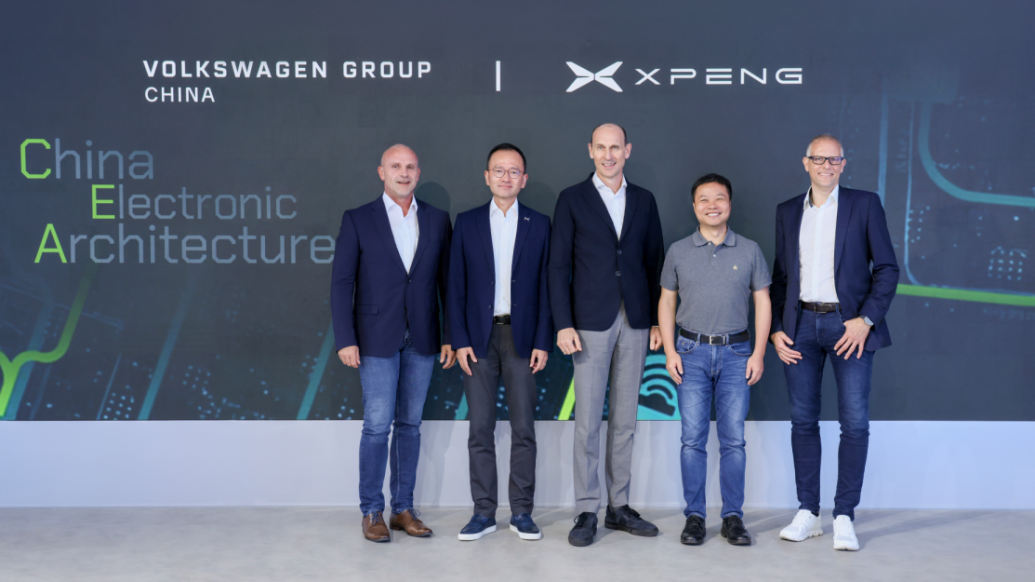
One year after the alliance, the cooperation between Volkswagen Group and Xpeng Motors entered a new stage.
On July 22, Xpeng Motors issued an announcement on the Hong Kong Stock Exchange stating that the company has signed a strategic cooperation and joint development agreement on electronic and electrical architecture technology with Volkswagen Group.
According to the agreement, Xpeng Motors and Volkswagen Group will explore expanding the application scope of the jointly developed electronic and electrical architecture. The two parties reached a consensus on promoting strategic cooperation in electronic and electrical architecture and hope to further strengthen their strategic partnership.
It is understood that Xiaopeng Motors and Volkswagen Group have established a joint development project team in Guangzhou and Hefei. The first model equipped with the electronic and electrical architecture jointly developed by the two parties is expected to be mass-produced in about 24 months.
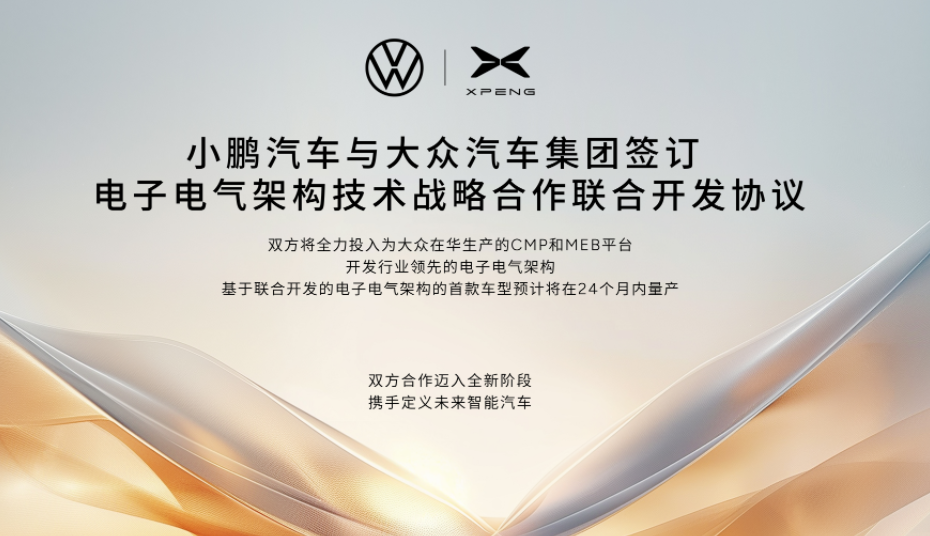
The cooperation between the two parties began a year ago. In July 2023, Volkswagen announced plans to invest $700 million in Xpeng Motors. The two parties will jointly develop two B-class pure electric vehicle models based on their respective core competitiveness and sell them in the Chinese market under the Volkswagen brand. The plans are to launch them on the market in 2026.
In December 2023, Volkswagen China acquired a stake in Xpeng Motors. After the transaction was completed, Volkswagen China held approximately 4.99% of Xpeng Motors' equity.
In February 2024, Xpeng Motors and Volkswagen signed a joint development agreement on platform and software strategic technologies, and established a joint procurement plan for common parts of vehicle models and platforms. In April 2024, Xpeng Motors and Volkswagen issued a joint statement that the two parties will sign the latest strategic cooperation framework agreement on electronic and electrical architecture technology, and jointly develop a new electronic and electrical architecture platform based on Xpeng Motors' latest generation of EEA architecture, which is expected to be applied to Volkswagen brand electric vehicles produced in China from 2026.
Not long ago, hundreds of Volkswagen engineers have moved into Xiaopeng Motors' headquarters to strengthen cooperation between the two parties and promote the implementation of cooperation projects as soon as possible.
In fact, with Volkswagen Group's electric vehicle sales facing stagnant growth and Xpeng Motors' sales always lagging behind the first tier of new forces, the two parties' cooperation is imminent.
According to data provided by Volkswagen Group, in the first half of this year, Volkswagen Group sold 317,200 electric vehicles worldwide, down 1.4% year-on-year. Among them, the European market, which accounts for more than 60% of its sales, fell sharply by 15.2% to 184,100 vehicles; the demand in the US market was also weak, falling by 15.4% to 25,200 vehicles; although the Chinese market increased by 45.2%, the volume was still only half of that in Europe, at 90,600 vehicles.
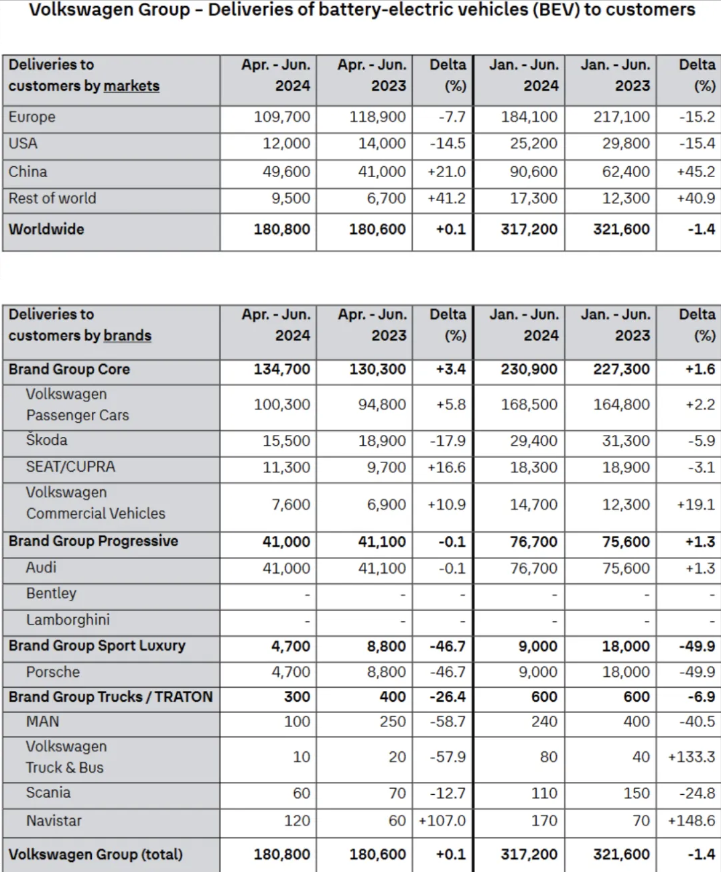
Looking at the brands, Volkswagen and Audi's global electric vehicle sales rose slightly in the first half of the year, up 2.2% and 1.3% year-on-year respectively. Porsche's global electric vehicle sales fell by half year-on-year to only 9,000 units. Porsche faces the dual adversity of being uncompetitive in the Chinese electric vehicle market and having no demand in the European and American electric vehicle markets.
For the Volkswagen Group, absorbing the technology of technologically advanced Chinese electric vehicle companies as quickly as possible and rapidly incubating and launching products on the market is the priority for this giant automaker to maintain its competitiveness in the era of fuel vehicles.
As for Xpeng Motors, its cumulative sales in the first half of this year reached 52,000 vehicles, a year-on-year increase of 25.6%. In comparison, the sales of the top two, Ideal and Wenjie, have both exceeded 180,000 vehicles. Following closely behind, Zeekr and NIO have accumulated nearly 90,000 vehicles.
One is a multinational giant that first established a joint venture in China, and the other is a technology company that once stood at the top of the new forces. Standing in the torrent of the times, both companies need to work together to move forward and find a solid foothold.


